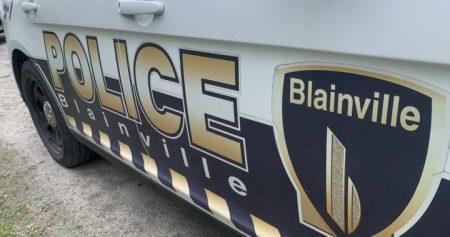Accessibility, a concern that touches everyone at some point in their lives, is being addressed in Saskatchewan through a dedicated accessibility committee. This committee aims to improve access for the approximately 300,000 individuals in the province who identify as having a disability, a significant portion representing one in three residents. The committee emphasizes the universality of disability, transcending demographics and impacting people across all backgrounds, regardless of race, ethnicity, language, or origin. The committee members highlight the importance of having a voice and advocating for improved accessibility for this substantial segment of the population.
Committee members Bobby Jansen and David Fourney exemplify the diverse lived experiences within the disability community. Fourney, who is hard of hearing and on the autism spectrum, stresses the importance of representation and advocacy for this significant population group. Jansen, who is blind, shares a personal anecdote of encountering a young boy learning to use a white cane, expressing his aspiration to be like Jansen when he grows up. This interaction reinforces Jansen’s commitment to driving positive change and improving accessibility within the province, underscoring the profound impact of representation and role models.
While acknowledging the strides made in accessibility within Saskatchewan, both Jansen and Fourney recognize the journey is ongoing. Recent progress includes the expansion of accessible features in provincial parks, such as the first accessible campsite at Blackstrap Provincial Park and a new accessible pier at the Saskatoon Forestry Park & Zoo. These advancements demonstrate a growing commitment to inclusivity and provide tangible improvements for people with disabilities. However, challenges remain, as exemplified by the unrealized plan for an accessible waterslide in Regina, highlighting the financial and logistical hurdles that can impede progress.
The committee’s work reflects a growing awareness of the need to shift perspectives on disability. Fourney challenges the perception of disability as a negative attribute, framing it instead as a source of pride and a unique perspective within the tapestry of Canadian experiences. He emphasizes the privilege of belonging to a distinct community with shared lived experiences. This reframing of disability as a positive aspect of identity empowers individuals and fosters a sense of belonging and shared purpose.
Both Jansen and Fourney urge individuals to be vocal advocates for accessibility, emphasizing the power of persistent communication. Jansen encourages individuals to maintain their advocacy, urging them not to allow their voices to be diminished and to continue speaking up until their concerns are heard and addressed. This call to action underscores the importance of individual advocacy in driving systemic change and creating a more inclusive society.
The ongoing efforts of the Saskatchewan accessibility committee, alongside the advocacy of individuals like Jansen and Fourney, demonstrate a commitment to creating a more accessible and inclusive province. This commitment is reflected in tangible improvements like accessible campsites and piers, alongside a broader shift in perspective that views disability not as a limitation, but as a valuable aspect of human diversity. Despite the challenges that remain, the continued advocacy and commitment of the committee and individuals with disabilities offer hope for a future where accessibility is not an afterthought, but an integral part of the societal fabric. The focus on representing the diverse experiences within the disability community and empowering individuals to advocate for their needs will be crucial in driving sustained progress towards a truly inclusive and equitable Saskatchewan.










